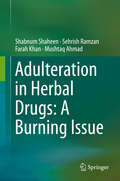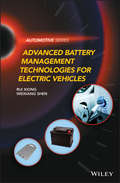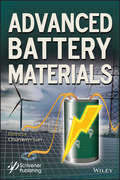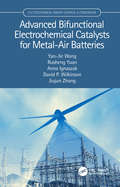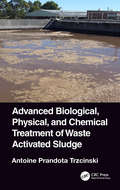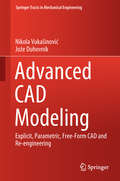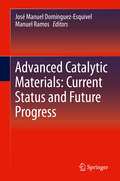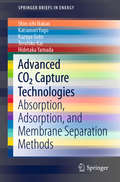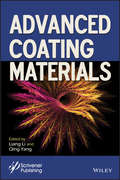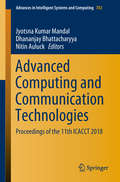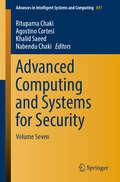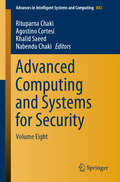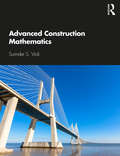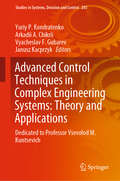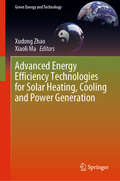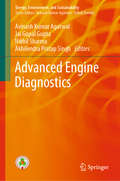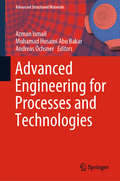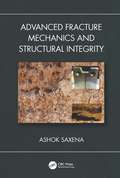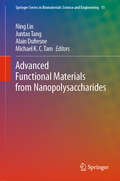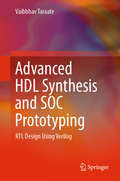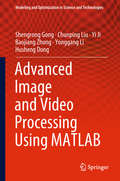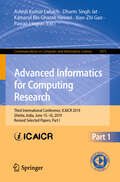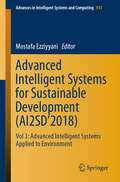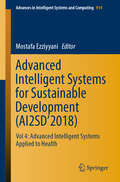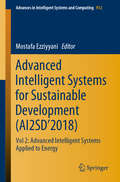- Table View
- List View
Adulteration in Herbal Drugs: A Burning Issue
by Shabnum Shaheen Sehrish Ramzan Farah Khan Mushtaq AhmadSubstitution and adulteration in traded herbal raw material are common practice in the herbal industry due to the extinction of required species, deforestation and incorrect taxonomical identification. Herbalists have adopted methods to create high quality adulteration which cannot be detected without performing microscopic examination or chemical analysis. It is difficult to establish specific quality control standards due to the complex nature and innate unpredictability of the chemical constituents of medicinal herbs.The main parameters for measurement and adulteration prevention in medicinal herbs are morphological and microscopic investigation, chemical profiling and DNA barcoding. The need for highly sensitive and more effective approaches for the authentication of medicinal herbs is necessary in order to promote the acceptance of herbal products. Adulteration In Traditional Medicinal Herbs is aimed at promoting awareness of adulteration in traditional herbal medicines for the worldwide scientific community. Parameters are established for the prevention of adulteration through classical and modern scientific tools. Valuable case studies are presented based on ethno-medicinal surveys performed in many herbal markets in Pakistan. Collections of various samples were obtained from these shops then compared with the original plants collected from field. Various phytochemical, organoleptic and DNA barcoding techniques were used in order to detect adulteration in the marketed herbal samples. This book is the first of its kind and is aimed at helping the scientific community to identify particular medicinal plants which are facing adulteration problems in herbal markets and to estimate the extent of adulteration and substitution in commonly used medicinal herbs.
Advanced Battery Management Technologies for Electric Vehicles (Automotive Series)
by Rui Xiong Weixiang ShenA comprehensive examination of advanced battery management technologies and practices in modern electric vehicles Policies surrounding energy sustainability and environmental impact have become of increasing interest to governments, industries, and the general public worldwide. Policies embracing strategies that reduce fossil fuel dependency and greenhouse gas emissions have driven the widespread adoption of electric vehicles (EVs), including hybrid electric vehicles (HEVs), pure electric vehicles (PEVs) and plug-in electric vehicles (PHEVs). Battery management systems (BMSs) are crucial components of such vehicles, protecting a battery system from operating outside its Safe Operating Area (SOA), monitoring its working conditions, calculating and reporting its states, and charging and balancing the battery system. Advanced Battery Management Technologies for Electric Vehicles is a compilation of contemporary model-based state estimation methods and battery charging and balancing techniques, providing readers with practical knowledge of both fundamental concepts and practical applications. This timely and highly-relevant text covers essential areas such as battery modeling and battery state of charge, energy, health and power estimation methods. Clear and accurate background information, relevant case studies, chapter summaries, and reference citations help readers to fully comprehend each topic in a practical context. Offers up-to-date coverage of modern battery management technology and practice Provides case studies of real-world engineering applications Guides readers from electric vehicle fundamentals to advanced battery management topics Includes chapter introductions and summaries, case studies, and color charts, graphs, and illustrations Suitable for advanced undergraduate and graduate coursework, Advanced Battery Management Technologies for Electric Vehicles is equally valuable as a reference for professional researchers and engineers.
Advanced Battery Materials
by Chunwen SunElectrochemical energy storage has played important roles in energy storage technologies for portable electronics and electric vehicle applications. During the past thirty years, great progress has been made in research and development of various batteries, in term of energy density increase and cost reduction. However, the energy density has to be further increased to achieve long endurance time. In this book, recent research and development in advanced electrode materials for electrochemical energy storage devices are presented, including lithium ion batteries, lithium-sulfur batteries and metal-air batteries, sodium ion batteries and supercapacitors. The materials involve transition metal oxides, sulfides, Si-based material as well as graphene and graphene composites.
Advanced Bifunctional Electrochemical Catalysts for Metal-Air Batteries (Electrochemical Energy Storage and Conversion)
by Yan-Jie Wang Rusheng Yuan Anna Ignaszak David P. Wilkinson Jiujun ZhangMetal-air batteries (MABs) have attracted attention because of their high specific energy, low cost, and safety features. This book discusses science and technology including material selection, synthesis, characterization, and their applications in MABs. It comprehensively describes various composite bifunctional electrocatalysts, corrosion/oxidation of carbon-containing air cathode catalysts, and how improvements can be achieved in the catalytic activities of oxygen reduction reaction and oxygen evolution reaction and their durability/stability. This book also analyzes, compares, and discusses composite bifunctional electrocatalysts in the applications of MABs, matching the fast information of commercial MABs in requirements. Aimed at researchers and industry professionals, this comprehensive work provides readers with an appreciation for what bifunctional composite electrocatalysts are capable of, how this field has grown in the past decades, and how bifunctional composite electrocatalysts can significantly improve the performance of MABs. It also offers suggestions for future research directions to overcome technical challenges and further facilitate research and development in this important area.
Advanced Biological, Physical, and Chemical Treatment of Waste Activated Sludge
by Antoine Prandota TrzcinskiRecently, research efforts aiming to improve energy efficiency of wastewater treatment processes for large centralized wastewater treatment plants (WWTPs) have been increasing. Global warming impacts, energy sustainability, and biosolids generation are among several key drivers towards the establishment of energy-efficient WWTPs. WWTPs have been recognized as major contributors of greenhouse gas emissions as these are significant energy consumers in the industrialized world. The quantity of biosolids or excess waste activated sludge produced by WWTP will increase in the future due to population growth and this pose environmental concerns and solid waste disposal issues. Due to limited capacity of landfill sites, more stringent environmental legislation, and air pollution from incineration sites, there is a need to rethink the conventional way of dealing with wastewater and the sludge production that comes with it. This book provides an overview of advanced biological, physical and chemical treatment with the aim of reducing the volume of sewage sludge. Provides a comprehensive list of processes aiming at reducing the volume of sewage sludge and increasing biogas production from waste activated sludge. Includes clear process flowsheet showing how the process is modified compared to the conventional waste activated sludge process. Provides current technologies applied on full scale plant as well as methods still under investigation at laboratory scale. Offers data from pilot scale experience of these processes
Advanced CAD Modeling: Explicit, Parametric, Free-form Cad And Re-engineering (Springer Tracts in Mechanical Engineering)
by Nikola Vukašinović Jože DuhovnikThe book discusses the theoretical fundamentals of CAD graphics to enhance readers’ understanding of surface modeling and free-form design by demonstrating how to use mathematical equations to define curves and surfaces in CAD modelers. Additionally, it explains and describes the main approaches to creating CAD models out of 3D scans of physical objects. All CAD approaches are demonstrated with guided examples and supported with comprehensive engineering explanations. Furthermore, each approach includes exercises for independent consolidation of advanced CAD skills. This book is intended for engineers and designers who are already familiar with the basics of modern CAD tools, e.g. feature based and solid based modeling in 3D space, and would like to improve and expand their knowledge and experience. It is also an easy-to use guide and excellent teaching and research aid for academics and practitioners alike.
Advanced Catalytic Materials: Current Status and Future Progress
by José Manuel Domínguez-Esquivel Manuel RamosThis book presents advances in computational methods, experimental synthesis, and advanced characterizations for novel catalytic materials. The authors show how catalytical materials can be used for various engineering oil & gas applications – mainly in low contaminants fuel production. All contributors, describe in detail novel experimental and theoretical techniques techniques and concepts for synthesis, evaluation and scaling catalytic materials and research advances in evaluation, extensive characterization and theoretical modeling using computer assisted methods and algorithms.Describes computational methods, experimental synthesis and advanced characterization for novel catalytic materials;Examines catalytic materials and corresponding engineering applications with a focus on low contaminant fuel production and derivatives;Covers the application of computer assisted quantum mechanical for fundamental understanding of electronic structure of molecular dimension catalytic materials.
Advanced CO2 Capture Technologies: Absorption, Adsorption, and Membrane Separation Methods (SpringerBriefs in Energy)
by Shin-ichi Nakao Katsunori Yogo Kazuya Goto Teruhiko Kai Hidetaka YamadaThis book summarises the advanced CO2 capture technologies that can be used to reduce greenhouse gas emissions, especially those from large-scale sources, such as power-generation and steel-making plants. Focusing on the fundamental chemistry and chemical processes, as well as advanced technologies, including absorption and adsorption, it also discusses other aspects of the major CO2 capture methods: membrane separation; the basic chemistry and process for CO2 capture; the development of materials and processes; and practical applications, based on the authors’ R&D experience. This book serves as a valuable reference resource for researchers, teachers and students interested in CO2 problems, providing essential information on how to capture CO2 from various types of gases efficiently. It is also of interest to practitioners and academics, as it discusses the performance of the latest technologies applied in large-scale emission sources.
Advanced Coating Materials
by Liang Li Qing YangThis book covers the recent advances in coating materials and their novel applications at the cross-section of advanced materials both current and next-generation. Advanced Coatings Materials contains chapters covering the latest research on polymers, carbon resins, and high-temperature materials used for coatings, adhesives, and varnishes today. Concise chapters describe the development, chemical and physical properties, synthesis and polymerization, commercial uses, and other characteristics for each raw material and coating detailed. A comprehensive, yet practical source of reference, this book provides an excellent foundation for comparing the properties and performance of coatings and selecting the most suitable materials based on specific service needs and environmental factors.
Advanced Computing and Communication Technologies: Proceedings of the 11th ICACCT 2018 (Advances in Intelligent Systems and Computing #702)
by Jyotsna Kumar Mandal Dhananjay Bhattacharyya Nitin AuluckThe book includes papers on a wide range of emerging research topics spanning theory, systems and applications of computing and communication technologies viz. Nonlinear Dynamics in Cryptography, Discrete domain Swarm Robotics, Machine Learning, Facility Layout Problem, Crowdfunding Projects, Deep Learning, MHD Nanofluid Flow, Medical Diagnostics, Human Computer Interface, Social Networking, System Performance, Wireless Sensor Networks, Cognitive Radio Networks, Antenna Design etc.; presented at the 11th International Conference on Advanced Computing and Communications Technologies (11th ICACCT 2018) held on 17-18 February, 2018 at Asia Pacific Institute of Information Technology, Panipat, India.
Advanced Computing and Systems for Security: Volume Seven (Advances in Intelligent Systems and Computing #897)
by Rituparna Chaki Agostino Cortesi Khalid Saeed Nabendu ChakiThe book includes extended versions of selected papers discussed and presented at the 5th International Doctoral Symposium on Applied Computation and Security Systems (ACSS 2018) held in Kolkata, India on February 9–11, 2018. The symposium was organized by the University of Calcutta’s Department of Computer Science & Engineering and A. K. Choudhury School of Information Technology, and the International partners were Ca Foscari University of Venice, Italy and Bialystok University of Technology, Poland. Reflect the symposium’s sessions, the book discusses topics such as biometrics, image processing, pattern recognition, algorithms, cloud computing, wireless sensor networks and security systems.
Advanced Computing and Systems for Security: Volume Eight (Advances in Intelligent Systems and Computing #883)
by Rituparna Chaki Agostino Cortesi Khalid Saeed Nabendu ChakiThe book includes extended versions of selected papers discussed and presented at the 5th International Doctoral Symposium on Applied Computation and Security Systems (ACSS 2018) held in Kolkata, India on February 9–11, 2018. The symposium was organized by the University of Calcutta’s Department of Computer Science & Engineering and A. K. Choudhury School of Information Technology, and the International partners were Ca Foscari University of Venice, Italy and Bialystok University of Technology, Poland. Reflect the symposium’s sessions, the book discusses topics such as biometrics, image processing, pattern recognition, algorithms, cloud computing, wireless sensor networks and security systems.
Advanced Construction Mathematics
by Surinder VirdiAdvanced Construction Mathematics covers the range of topics that a student must learn in order to achieve success in Level 3 and 4 mathematics for the Pearson BTEC National and BTEC HNC/HND in Construction, Building Services, and Civil Engineering. Packed with easy to follow examples, its 18 chapters cover algebra (equations, transposition and evaluation of formulae), differentiation, integration, statistics and numerous other core concepts and their application in the construction/civil engineering field. The book explains technical processes before applying mathematical techniques to solve practical problems which gradually build in complexity. Each chapter contains self-test exercises and answers and numerous illustrations to simplify the essential maths required at Levels 3 and 4. The book is also a useful recap or primer for students on BSc or non-cognate MSc Construction and Civil Engineering degrees.
Advanced Control Techniques in Complex Engineering Systems: Dedicated to Professor Vsevolod M. Kuntsevich (Studies in Systems, Decision and Control #203)
by Yuriy P. Kondratenko Arkadii A. Chikrii Vyacheslav F. Gubarev Janusz KacprzykThis book presents an authoritative collection of contributions by researchers from 16 different countries (Austria, Chile, Georgia, Germany, Mexico, Norway, P.R. of China, Poland, North Macedonia, Romania, Russia, Spain, Turkey, Ukraine, the United Kingdom and United States) that report on recent developments and new directions in advanced control systems, together with new theoretical findings, industrial applications and case studies on complex engineering systems. This book is dedicated to Professor Vsevolod Mykhailovych Kuntsevich, an Academician of the National Academy of Sciences of Ukraine, and President of the National Committee of the Ukrainian Association on Automatic Control, in recognition of his pioneering works, his great scientific and scholarly achievements, and his years of service to many scientific and professional communities, notably those involved in automation, cybernetics, control, management and, more specifically, the fundamentals and applications of tools and techniques for dealing with uncertain information, robustness, non-linearity, extremal systems, discrete control systems, adaptive control systems and others. Covering essential theories, methods and new challenges in control systems design, the book is not only a timely reference guide but also a source of new ideas and inspirations for graduate students and researchers alike. Its 15 chapters are grouped into four sections: (a) fundamental theoretical issues in complex engineering systems, (b) artificial intelligence and soft computing for control and decision-making systems, (c) advanced control techniques for industrial and collaborative automation, and (d) modern applications for management and information processing in complex systems. All chapters are intended to provide an easy-to-follow introduction to the topics addressed, including the most relevant references. At the same time, they reflect various aspects of the latest research work being conducted around the world and, therefore, provide information on the state of the art.
Advanced Energy Efficiency Technologies for Solar Heating, Cooling and Power Generation (Green Energy and Technology)
by Xudong Zhao Xiaoli MaThis book, based on the research experience and outcomes of a group of international contributors, addresses a range of advanced energy efficiency technologies and their applications in solar heating, cooling and power generation, while also providing solutions for tackling recurring low efficiency problems in today’s systems. It highlights the latest technologies and methods, which can significantly improve the performance of solar systems, enabling readers to design, construct and apply high-performance solar systems in or for their own projects. The contributors provide a systematic introduction to state-of-the-art energy efficiency technologies that demonstrates how to implement innovative solar systems. These technologies include: • heat pipes and loop heat pipes; • phase change materials (PCMs) and PCM slurries; • micro-channel panels; • desiccant/adsorption cycling; • ejector cooling and heat pumps; and • solar concentration and thermoelectric units. The book shows how innovative solar systems applicable to rural and urban buildings can be analysed and demonstrates the successful implementation of these advanced technologies. It delivers the design principles and associated energy performance assessment methods for a range of selected solar heating, cooling and power generation projects. This book offers a valuable source of information for final-year undergraduate students, as well as graduate students and academic lecturers, as it promotes the widespread deployment of advanced solar heating, cooling and power generation technologies applicable for buildings across the globe. The book is also a good point of reference for design engineers and energy consultants who wish to extend their knowledge of advanced technologies used to achieve energy efficiency.
Advanced Engine Diagnostics (Energy, Environment, and Sustainability)
by Avinash Kumar Agarwal Jai Gopal Gupta Nikhil Sharma Akhilendra Pratap SinghThis book describes the discusses advanced fuels and combustion, emission control techniques, after-treatment systems, simulations and fault diagnostics, including discussions on different engine diagnostic techniques such as particle image velocimetry (PIV), phase Doppler interferometry (PDI), laser ignition. This volume bridges the gap between basic concepts and advanced research in internal combustion engine diagnostics, making it a useful reference for both students and researchers whose work focuses on achieving higher fuel efficiency and lowering emissions.
Advanced Engineering for Processes and Technologies (Advanced Structured Materials #102)
by Azman Ismail Muhamad Husaini Abu Bakar Andreas ÖchsnerThis book presents various state-of-the-art applications for the development of new materials and technologies, discussing computer-based engineering tools that are widely used in simulations, evaluation of data and design processes. For example, modern joining technologies can be used to fabricate new compound or composite materials, even those composed of dissimilar materials. Such materials are often exposed to harsh environments and must possess specific properties. Technologies in this context are mainly related to the transportation technologies in their wider sense, i.e. automotive and marine technologies, including ships, amphibious vehicles, docks, offshore structures, and robots. This book highlights the importance the finite element and finite volume methods that are typically used in the context of engineering simulations.
Advanced Fracture Mechanics and Structural Integrity
by Ashok SaxenaAdvanced Fracture Mechanics and Structural Integrity is organized to cover quantitative descriptions of crack growth and fracture phenomena. The mechanics of fracture are explained, emphasizing elastic-plastic and time-dependent fracture mechanics. Applications are presented, using examples from power generation, aerospace, marine, and chemical industries, with focus on predicting the remaining life of structural components and advanced testing metods for structural materials. Numerous examples and end-of-chapter problems are provided, along with references to encourage further study.The book is written for use in an advanced graduate course on fracture mechanics or structural integrity.
Advanced Functional Materials from Nanopolysaccharides (Springer Series in Biomaterials Science and Engineering #15)
by Ning Lin Juntao Tang Alain Dufresne Michael K. C. TamThis book describes the latest research on nanopolysaccharides in the development of functional materials, from their preparation, properties and functional modifications to the architecture of diverse functional materials. Polysaccharide-based nanoparticles, including nanocellulose, nanochitin, and nanostarch have attracted interest in the field of nanoscience, nanotechnology, and materials science that encompasses various industrial sectors, such as biomedicine, catalyst, coating, energy, optical materials, environmental materials, construction materials, and antibacterial materials. This book establishes a fundamental framework, highlighting the architecture strategies of typical functional systems based on nanopolysaccharides and integrated analysis of their significant influence and properties to various functional behaviors of materials, to help readers to fully understand the fundamental features of nanopolysaccharides and functional materials. Addressing the potential for practical applications, the book also covers the related industrial interests and reports on highly valued products from nanopolysaccharides, providing ideas for future studies in the area. Intended both for academics and professionals who are interested in nanopolysaccharides, it is also a valuable resource for postgraduate students, researchers, and engineers involved in R&D of natural polymers, nanotechnology, and functional materials.
Advanced HDL Synthesis and SOC Prototyping: Rtl Design Using Verilog
by Vaibbhav TaraateThis book describes RTL design using Verilog, synthesis and timing closure for System On Chip (SOC) design blocks. It covers the complex RTL design scenarios and challenges for SOC designs and provides practical information on performance improvements in SOC, as well as Application Specific Integrated Circuit (ASIC) designs. Prototyping using modern high density Field Programmable Gate Arrays (FPGAs) is discussed in this book with the practical examples and case studies. The book discusses SOC design, performance improvement techniques, testing and system level verification, while also describing the modern Intel FPGA/XILINX FPGA architectures and their use in SOC prototyping. Further, the book covers the Synopsys Design Compiler (DC) and Prime Time (PT) commands, and how they can be used to optimize complex ASIC/SOC designs. The contents of this book will be useful to students and professionals alike.
Advanced Image and Video Processing Using MATLAB (Modeling and Optimization in Science and Technologies #12)
by Shengrong Gong Chunping Liu Yi Ji Baojiang Zhong Yonggang Li Husheng DongThis book offers a comprehensive introduction to advanced methods for image and video analysis and processing. It covers deraining, dehazing, inpainting, fusion, watermarking and stitching. It describes techniques for face and lip recognition, facial expression recognition, lip reading in videos, moving object tracking, dynamic scene classification, among others. The book combines the latest machine learning methods with computer vision applications, covering topics such as event recognition based on deep learning,dynamic scene classification based on topic model, person re-identification based on metric learning and behavior analysis. It also offers a systematic introduction to image evaluation criteria showing how to use them in different experimental contexts. The book offers an example-based practical guide to researchers, professionals and graduate students dealing with advanced problems in image analysis and computer vision.
Advanced Informatics for Computing Research: Third International Conference, ICAICR 2019, Shimla, India, June 15–16, 2019, Revised Selected Papers, Part I (Communications in Computer and Information Science #1075)
by Ashish Kumar Luhach Dharm Singh Jat Kamarul Bin Ghazali Hawari Xiao-Zhi Gao Pawan LingrasThis two-volume set (CCIS 1075 and CCIS 1076) constitutes the refereed proceedings of the Third International Conference on Advanced Informatics for Computing Research, ICAICR 2019, held in Shimla, India, in June 2019. The 78 revised full papers presented were carefully reviewed and selected from 382 submissions. The papers are organized in topical sections on computing methodologies; hardware; information systems; networks; software and its engineering.
Advanced Intelligent Systems for Sustainable Development: Vol 3: Advanced Intelligent Systems Applied To Energy (Advances in Intelligent Systems and Computing #912)
by Mostafa EzziyyaniThis book gathers papers presented at the International Conference on Advanced Intelligent Systems for Sustainable Development (AI2SD-2018), which was held in Tangiers, Morocco on 12–14 July 2018. It highlights how advanced intelligent systems have successfully been used to develop tools and techniques for modeling, prediction and decision support in connection with the environment. <p><p> Though chiefly intended for researchers and practitioners in advanced intelligent systems for sustainable development, the book will also be of interest to those working in environment and the Internet of Things, environment and big data analysis, summarization, prediction, remote sensing & geo-information, geophysics, marine and coastal environments, and sensor networks for environment services.
Advanced Intelligent Systems for Sustainable Development: Vol 4: Advanced Intelligent Systems Applied to Health (Advances in Intelligent Systems and Computing #914)
by Mostafa EzziyyaniThis book gathers papers presented at the International Conference on Advanced Intelligent Systems for Sustainable Development (AI2SD-2018), which was held in Tangiers, Morocco on 12–14 July 2018. Highlighting the latest research and advances in the field of healthcare, it shares essential insights into the health sector, and is intended to stimulate further discussion and promote closer interdisciplinary collaboration among researchers and health professionals.
Advanced Intelligent Systems for Sustainable Development: Vol 2: Advanced Intelligent Systems Applied to Energy (Advances in Intelligent Systems and Computing #912)
by Mostafa EzziyyaniThis book gathers papers presented at the International Conference on Advanced Intelligent Systems for Sustainable Development (AI2SD-2018), which was held in Tangiers, Morocco on 12–14 July 2018. In addition to the latest research in the field of energy, it offers new solutions, tools and effective techniques, and provides essential information on smart grids, renewable and economical energy. Further, it addresses modeling, storage management and decision support in the field of energy, offering a valuable guide for researchers, professionals and all those who are interested in the development of advanced intelligent systems in the energy sector.
